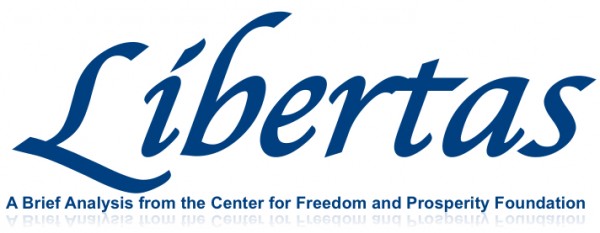Proposed IRS Interest Reporting Regulation
Threatens U.S. Economy
In January of 2011, the IRS proposed a regulation (REG-146097-09) to force American banks to report the interest paid to all nonresident aliens. Banks do not currently report this private financial information to the IRS because it is long standing policy not to tax such foreign investment in the interests of keeping the U.S. an attractive destination for foreign capital. The regulation would overturn this policy and by sharing financial information of foreign investors, would most likely allow the home countries of these depositors to tax the interest, resulting in their flight to other jurisdictions that do not tax or share information. The rule will drive capital investment from the U.S., goes against 90-years of Congressional intent, costs more than it benefits, and threatens the lives and human rights of many investors.
Regulation History
Three days before President Clinton left office, the IRS proposed REG-126100-00. Like today’s proposal, REG-126100-00 sought to require US banks to report interest deposit payments to non-resident aliens. This initial proposal drew heated opposition from both industry and the public policy community. More than 99 percent of the submissions during the public comment period were hostile, and 100 percent of the testimony at the public hearing was negative.
In the face of overwhelming opposition, the IRS was forced to withdraw the regulation in August 2002, but played a game of bait-and-switch and immediately submitted a similar measure (REG-133254-02).which affected a smaller number of countries. The cosmetic changes did not succeeded in fooling critics, and the “new” regulation encountered the same degree of opposition. Between the two versions, more than 150 Senators and Congressmen weighed in against the proposed regulations. The interest-reporting regulation then remained in limbo until 2011, when the second version was also withdrawn and the modern incarnation was proposed. The new version again looks to apply the requirements to nonresident aliens from all countries.
Why It’s Bad Policy
The repeated efforts by the IRS to require nonresident alien interest reporting have met consistent and bipartisan opposition from a wide variety of sources precisely because it offers little to no direct benefit to the U.S., despite coming at a high cost to the economy. Specifically, the proposed regulation represents bad policy for the following reasons:
- The proposal would drive capital from U.S. banks, causing irreparable harm to the economy. Adoption of the regulation will place U.S. banks at a competitive disadvantage to jurisdictions which maintain a respect for financial privacy and sound tax policy. Because the IRS intends to share the information with foreign tax collectors, it has the same effect as if the U.S. were taxing it directly – an incentive for depositors to relocate their funds. This in turn will reduce the amount of credit available to local communities. When the IRS proposed a version of the rule applicable to only 15 countries, one study found it would result in a loss of $88 billion in foreign investment. With the broader scope of the current proposal and growth in foreign investment in the U.S., that estimate would necessarily be higher today. Nonresident aliens are estimated to have deposited over $3 trillion in U.S. financial institutions, and losing even a fraction of those deposits represents a significant threat to the U.S. economy.
- The regulation violates the intent of Congress. Congress most recently addressed the tax treatment of nonresident alien bank deposit interest in the Tax Reform Act of 1976 and the Tax Reform Act of 1986. Both laws clearly demonstrated that lawmakers wanted to retain the longstanding policy of attracting capital to the American economy by not taxing interest paid to non-resident aliens. The Joint Committee on Taxation summarized in 1976 that “Congress has concluded that the elimination of the exemption would result in a significant decline in the substantial deposits by nonresident aliens and foreign corporations in banks in the United States.” This proposal, while not a direct tax on deposits by the U.S., will have the same impact as JCT feared because it makes no difference to depositors which country is doing the taxing. Lawmakers have explicitly chosen not to tax the deposit interest paid to nonresident aliens for the purpose of attracting capital to the U.S. economy, and regulatory agencies such as the IRS are tasked with enforcing – not overturning – law.
- The IRS has not followed legal requirements. According to Executive Order 12866, regulatory agencies are required to conduct a cost-benefit analysis for any regulation that would have an annual effect of more than $100 million on the economy. Despite considerable evidence and testimony showing a much greater impact from this rule than $100, the IRS waved the requirement away by declaring without substantiation that their proposal is “not a significant regulatory action.”
- The regulation threatens human rights. Financial privacy is a key component of defending against human rights abuses in many countries. Not all governments respect the privacy of their citizens, nor prove capable of defending them against crime. Depositors from certain nations, for instance, are particularly sensitive to threats of kidnapping and extortion. Even worse, many governments themselves threaten the well-being of their citizens when they are overly corrupt, prone to bribery, or just plain tyrannical, yet this regulation would potentially expose financial data to rogue regimes like that of Venezuala’s Hugo Chavez.
For more information, visit: https://freedomandprosperity.org/issues/irs-information-sharing-regulation/

